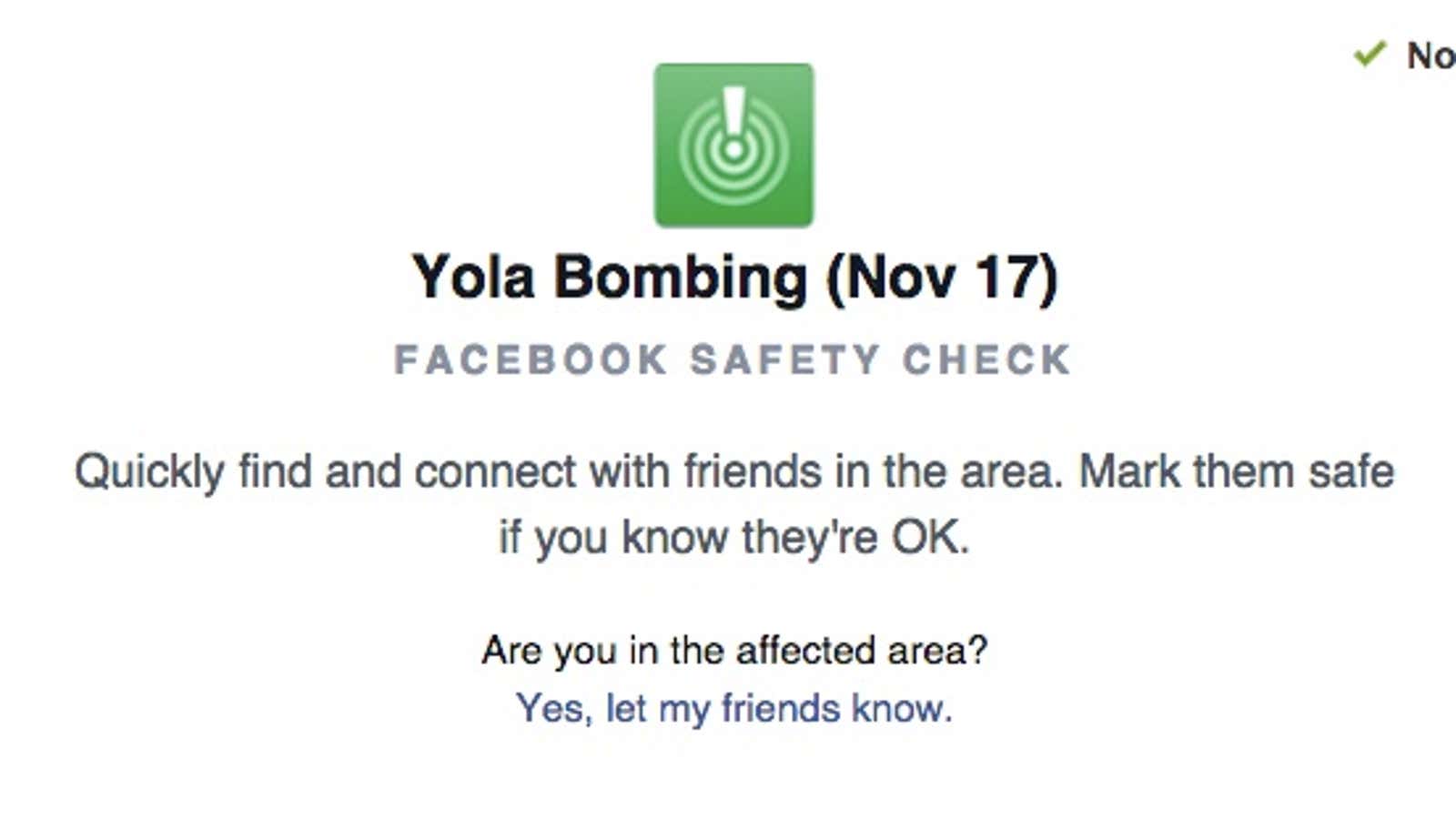After intense criticism over the decision to activate its “safety check” feature for the attacks in Paris but not for the Beirut bombings a day earlier, Facebook told over a billion users worldwide that it was changing its policy.
“You are right that there are many other important conflicts in the world,” Mark Zuckerberg, Facebook’s CEO, said in a post on Nov. 15. “We care about all people equally, and we will work hard to help people suffering in as many of these situations as we can.”
The opportunity to demonstrate this new commitment came just days later. On Wednesday morning (Nov. 18), an explosion ripped through a market in the northeastern Nigerian city of Yola, a site of previous Boko Haram attacks, killing 30 people and injuring many others.
Soon after the news broke, Facebook activated the safety check feature for Yola’s residents. Zuckerburg said that the safety check had been activated. ”Unfortunately, these kinds of events are all too common, so I won’t post about all of them. A loss of human life anywhere is a tragedy, and we’re committed to doing our part to help people in more of these situations,” he wrote on Facebook.
Facebook first launched Safety Check last year, based on a location tool built after the 2011 tsunami and nuclear disaster in Japan. Last Friday, as news of the ISIL attacks spread, the social media platform activated it for Paris residents for the first time for a conflict situation. The feature allows users to “check-in” by announcing they are safe if they are located in close proximity to a dangerous situation.
